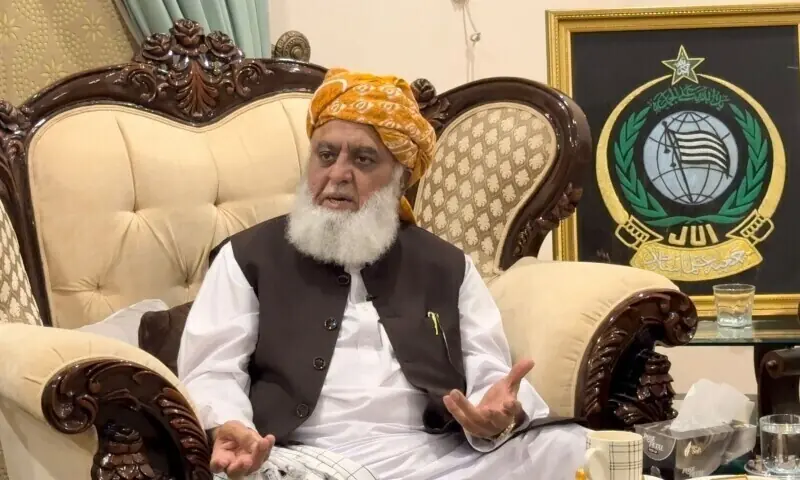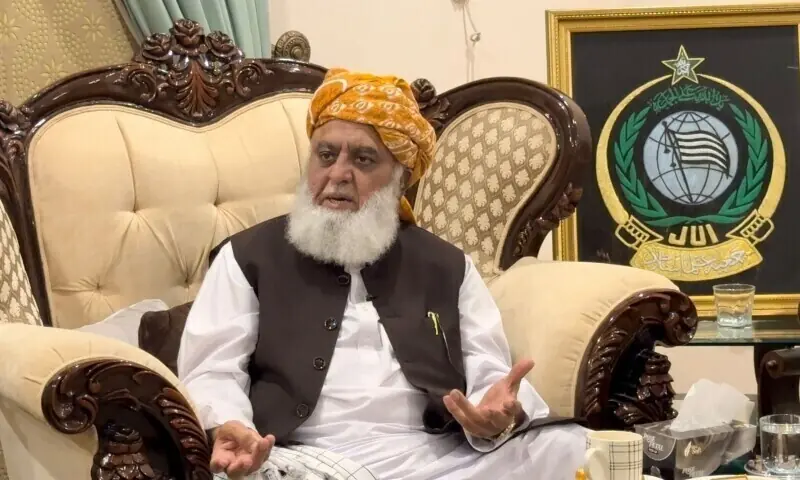
Jamiat Ulema-i-Islam (JUI-F) chief Maulana Fazlur Rehman on Tuesday offered to mediate between Pakistan and Afghanistan to ease tensions, days after border clashes heightened friction between the two neighbours.
On Sunday, 23 Pakistani troops were martyred and 200 Taliban and affiliated terrorists were killed in border clashes following an attack from the Afghan side, according to the military’s media wing, the Inter-Services Public Relations (ISPR).
It said clashes began “on the night of Oct 11/12, 2025, after Afghan Taliban and India-sponsored Fitna-al-Khawarij launched an unprovoked attack on Pakistan, along the Pak-Afghan border.” Fitna-al-Khawarij is a term the state uses for terrorists belonging to the banned Tehreek-i-Taliban Pakistan (TTP).
“In the past, I played a role in reducing tensions between Pakistan and Afghanistan, and I can do it now, too,” Fazl told reporters in Islamabad.
The JUI-F chief, the only Pakistani political leader who has met the Taliban supreme leader, Shaikh Hibatullah, has an influence on the Afghan Taliban.
“I have been in contact with the Afghan leadership, and they want to resolve the issues through understanding,” the JUI-F chief said.
Fazl said that with a ceasefire now in place between Pakistan and Afghanistan, both sides should refrain from blaming each other for the recent hostilities.
“Both countries should try to cool things down instead of provoking each other, including on social media,” he added.
Talking about Afghan Foreign Minister Amir Khan Muttaqi’s visit to India, the JUI-F chief insisted that instead of “making a fuss over Muttaqi’s statement on Kashmir being part of India, “we should also look at our own role in Kashmir.”
“How many policies has Pakistan changed on Kashmir? Does Pakistan want a solution to Kashmir in accordance with the spirit of UN resolutions, and what progress has it made on this?“ Maulana asked.
He said Afghanistan’s intelligence and other military capabilities were still in their initial phase. On Sunday, Afghan Taliban Spokesman Zabihullah Mujahid had said that Pakistani strikes on Kabul “will have consequences” and that the country had “weapons to respond.”
“Pakistan has a world-class army and capability. Our state should think whether opening a western front is somehow the right war strategy at this time,” the JUI chief maintained.
The increased activity of armed groups within Pakistan since the Taliban takeover of Afghanistan in 2021 has remained a common source of tensions between the two neighbours. Pakistan maintains that armed groups, particularly the TTP, operate from within Afghan soil, a claim that Afghan officials have denied, maintaining that no one can use Afghan soil against any country.
Last year in October, the Taliban government had extended assurances to Pakistan that it would not allow terrorist groups to use its soil against Pakistan.

